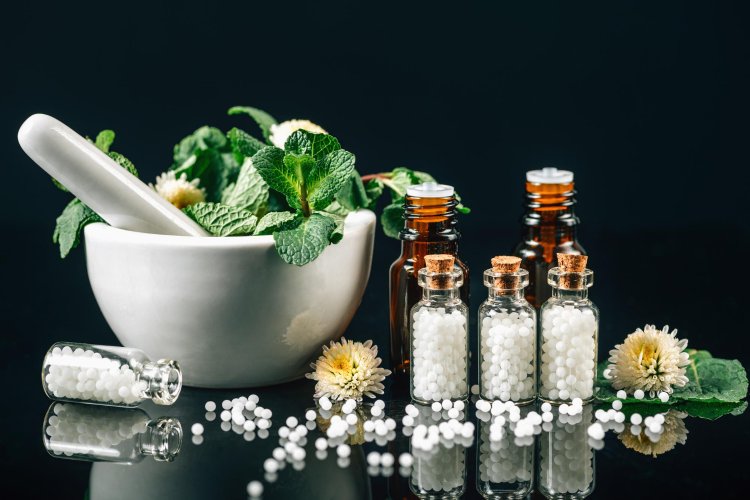Controversies and Contradictions: The Debate on Homeopathy
Homeopathy, a controversial yet widely practiced alternative medicine system, traces its origins to the late 18th century when German physician Samuel Hahnemann developed its foundational principles. Despite ongoing debates about its efficacy within the medical community, homeopathy has garnered a significant following globally, with proponents advocating its holistic approach to healing.

Historical Background and Development
Samuel Hahnemann, disillusioned with the harsh medical practices of his time, sought to introduce a gentler form of treatment. His experiments with quinine, a treatment for malaria, led him to formulate the principle of "like cures like." This principle suggests that substances causing symptoms in healthy individuals can treat similar symptoms in sick individuals, forming the basis of homeopathic theory.
Fundamental Principles of Homeopathy
Homeopathy operates on three fundamental principles:
Law of Similars
The cornerstone of homeopathy, this principle posits that a substance which can cause symptoms in a healthy person can, in very small doses, treat similar symptoms in a sick person.
Law of Infinitesimals
Homeopathic remedies are prepared through a process of serial dilution and succussion (vigorous shaking). According to homeopathic theory, as the substance is diluted, its healing properties are enhanced while its toxicity diminishes, even at dilutions where no molecules of the original substance remain.
Holistic Treatment Approach
Unlike conventional medicine, which often focuses on treating specific diseases or symptoms, homeopathy emphasizes treating the whole person. Practitioners consider physical, emotional, and mental aspects of a patient's health when prescribing remedies.
Preparation and Administration of Remedies
Homeopathic remedies are derived from various sources, including plants, minerals, and animal substances. The preparation process involves serial dilution, typically in water or alcohol, followed by succussion. Remedies are often highly diluted, sometimes reaching extreme dilutions like 30C (where the dilution factor is 10^30) or even higher. Despite these high dilutions, proponents argue that the remedies retain the medicinal essence of the original substance, which is believed to stimulate the body's self-healing mechanisms.
Commonly Used Remedies in Homeopathy
Homeopathic treatments are tailored to individual symptoms and characteristics. Some commonly used remedies include:
- Arnica montana: Used for bruises, muscle soreness, and trauma.
- Nux vomica: Prescribed for digestive issues, hangovers, and stress.
- Rhus toxicodendron: Applied for joint pain, arthritis, and skin rashes.
- Apis mellifica: Used for insect stings, allergic reactions, and swelling.
Clinical Application and Controversy
Homeopathy is utilized for a wide range of acute and chronic conditions, including allergies, asthma, depression, digestive disorders, migraines, and arthritis. However, its efficacy remains a subject of debate:
Scientific Scrutiny
Numerous clinical studies and systematic reviews have failed to conclusively prove the efficacy of homeopathy beyond a placebo effect. Critics argue that the purported benefits of homeopathy may be attributed to placebo responses rather than the remedies themselves.
Regulatory Challenges
The regulation of homeopathy varies globally. In some countries, such as the United States and Australia, homeopathic products are regulated as medicines or dietary supplements, while in others, like Germany and India, homeopathy is more integrated into mainstream healthcare.
Safety Concerns
While homeopathic remedies are generally considered safe due to their high dilutions, concerns exist regarding their potential use as alternatives to evidence-based treatments. Delayed or inadequate medical care resulting from reliance on homeopathy can lead to adverse health outcomes.
Global Perspectives and Regulation
In different parts of the world, homeopathy enjoys varying degrees of acceptance and regulation:
- United States: The Food and Drug Administration (FDA) oversees the regulation of homeopathic products, although recent efforts have been made to reevaluate their safety and efficacy.
- Europe: Countries like France and the United Kingdom have historical roots in homeopathy, with remedies widely available and sometimes covered by national health services.
- India: Homeopathy is highly popular and integrated into the healthcare system, with dedicated hospitals, educational institutions, and a large number of practitioners.
In conclusion, homeopathy continues to provoke lively debate within the medical community and among the general public. Supporters praise its holistic approach and minimal side effects, while skeptics question its scientific basis and warn against potential health risks associated with relying solely on homeopathic treatments. As research and medical understanding evolve, the ongoing discourse surrounding homeopathy underscores the complex interplay between tradition, patient preference, scientific scrutiny, and healthcare policy.
Disclaimer: The information provided in this article is for educational purposes only and should not be considered medical advice. If you have any health concerns or are experiencing symptoms, it is important to consult with a healthcare professional, such as a doctor or clinic, for proper diagnosis and treatment. Always seek the advice of your doctor or other qualified health provider with any questions you may have regarding a medical condition. Do not disregard professional medical advice or delay in seeking it because of something you have read in this article.
Hashtags: #Homeopathy #AlternativeMedicine #NaturalHealing #HealthCare #HolisticHealth #Wellness #HealthTips #HomeopathicRemedies #MedicalDebate #HealthAwareness
What's Your Reaction?





















